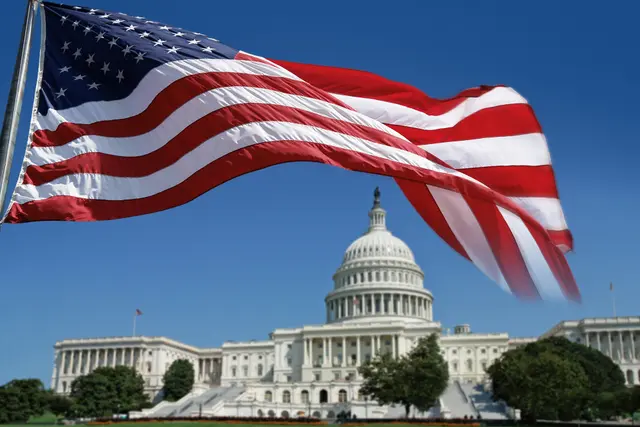On May 28, 2025, a three-judge panel of the U.S. Court of International Trade (CIT) issued a unanimous decision vacating and permanently enjoining the enforcement of tariffs imposed under the International Emergency Economic Powers Act (IEEPA). The full decision is available here. The CIT gave the Administration 10 days – until June 7, 2025 – to issue orders that would end the collection of tariffs under the IEEPA Fentanyl and Reciprocal tariff actions. As of May 29, 2025, CBP is still collecting these tariffs. The U.S. Court of Appeals for the Federal Circuit granted a temporary stay to pause the CIT’s judgment and directed the parties to file briefings by June 5 and June 9, 2025.
The CIT ruling bars the following IEEPA tariff actions:
Fentanyl-related tariffs:
- Canada (E.O. 14193)- 25% duty rate for goods that do not claim or qualify for USMCA duty-free preference and 10% for energy and potash imports that do not claim or qualify for USMCA duty-free preference.
- Mexico (E.O. 14194)- 25% duty rate for goods that do not claim or qualify for USMCA duty-free preference and 10% for potash imports that do not claim or qualify for USMCA duty-free preference.
- China (E.O. 14195)- 20% duty rate for all goods from China
Reciprocal tariffs:
- Global (except Canada and Mexico) (E.O. 14257)- currently 10% duties on most products from all countries of origin, including China, with exceptions for goods subject to Section 232 tariff actions and other goods listed in Annex II of E.O. 14257.
The CIT found that the IEEPA Fentanyl and Reciprocal tariff actions are unlawful and exceed IEEPA’s authority. First, the Court found that IEEPA does not provide for unlimited tariff authority while the Reciprocal tariffs lack any identifiable limits. Indeed, the Court noted that the Constitution explicitly grants to Congress the power to impose tariffs and to regulate trade, and found that Congress did not (and could not under the Constitution) grant the President “unbounded … authority to impose unlimited tariffs on goods from nearly every country in the world.”
Second, the Court held, in particular, that the Fentanyl actions do not “deal with” the stated objectives (a failure to thwart trafficking and other crime). The text of IEEPA states that the President’s actions must “deal with an unusual and extraordinary threat with respect to which a national emergency has been declared . . . and may not be exercised for any other purpose.” The Court found that President may not use IEEPA “to take whatever actions he chooses simply by declaring them ‘pressure’ or ‘leverage’ tactics that will elicit a third party’s response to an unconnected ‘threat.’”
The CIT ordered that the IEEPA Fentanyl and Reciprocal actions and all modifications and amendments are declared to be invalid as contrary to law. The CIT further enjoined the Government from enforcing the IEEPA actions. The CIT provided the Government with 10 calendar days to effectuate necessary administrative orders for the permanent injunction of the orders. The Government has also requested that the Courts stay the judgment while the appellate process is concluded.
Note that the CIT opinion does not affect the following tariff actions: Section 301-China and all current Section 232 tariff actions (i.e. steel, aluminum, automobiles, and auto parts).
Next Steps:
- In its opinion, the CIT wrote: “if the challenged Tariff Orders are unlawful as to Plaintiffs they are unlawful as to all.” Therefore, it appears that the CIT will not require individual importers to file lawsuits at the CIT to preserve administrative rights to challenge the IEEPA actions.
- By June 7, 2025, the Government must provide necessary administrative actions to stop enforcement of the IEEPA tariff actions. At this time, it is unclear whether the CIT will order U.S. Customs and Border Protection (CBP) to issue automatic administrative refunds for IEEPA tariffs paid, or whether importers will need to submit claims for refunds to CBP (i.e., in the form of post summary corrections or protests).
- On May 28, 2025, the Government filed its appeal with the U.S. Court of Appeals for the Federal Circuit (CAFC) (case no. 2025-1812). At this time, it is unclear whether the Government will request expedited proceedings. Moreover, the CAFC may also modify the CIT’s order to keep the IEEPA tariffs in effect pending the final disposition of the litigation.
- We expect further appeals to the U.S. Supreme Court following the CAFC decision.
We will closely monitor any updates on the CIT’s ruling and appeals process.




/Passle/6759c8e90870a6db06cc00e2/SearchServiceImages/2025-12-11-18-44-42-071-693b111a641ff44fb22b0f25.jpg)
/Passle/6759c8e90870a6db06cc00e2/SearchServiceImages/2025-10-27-19-12-36-841-68ffc424d509f987f3eeb2a5.jpg)
/Passle/6759c8e90870a6db06cc00e2/SearchServiceImages/2025-10-27-19-16-57-184-68ffc529d509f987f3eeb6c9.jpg)
/Passle/6759c8e90870a6db06cc00e2/SearchServiceImages/2025-10-27-19-04-03-795-68ffc223186d67c4aefc2c32.jpg)